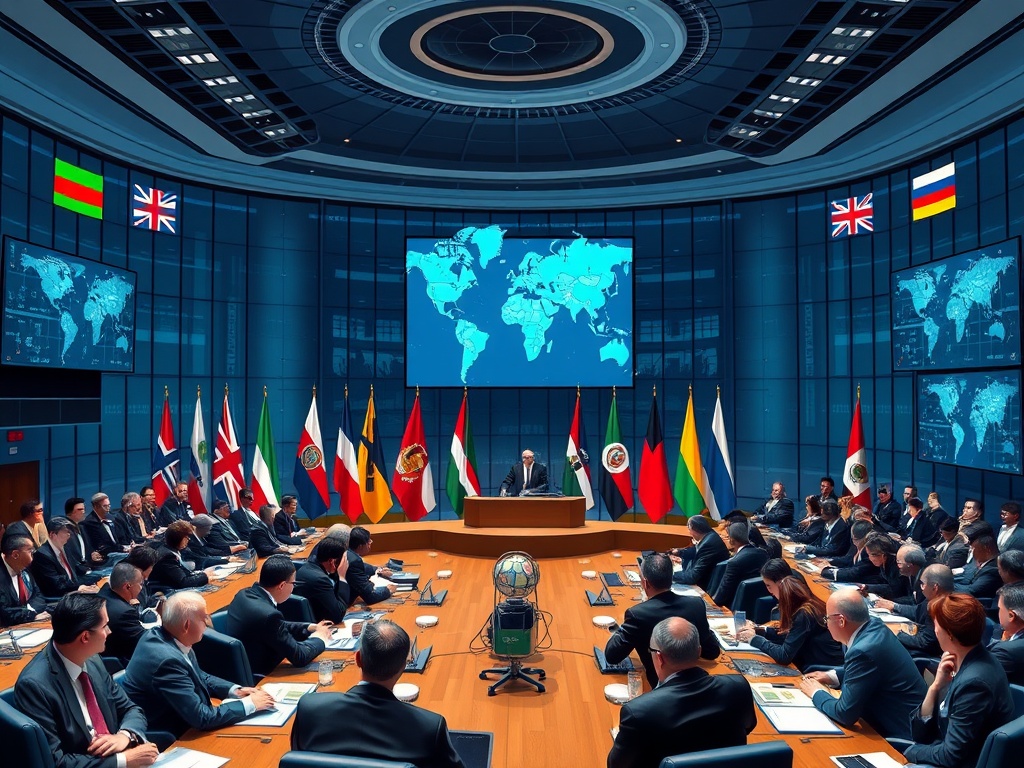The annual Munich Security Conference has often served as a diplomatic platform, characterized by polite discussions surrounding defense spending, military technology advancements, and the implications of artificial intelligence. However, this year’s conference took a dramatic turn, signaling a significant shift in the relationship between Europe and the United States. As one senior delegate aptly remarked, we are now operating in an era defined by “Trump time”—a time when critical events and consequential decisions unfold rapidly, often without the consultation or inclusion of traditional allies who have stood together since the end of World War II.
In a striking opening address, US Vice President JD Vance launched a scathing critique of Europe, highlighting a myriad of perceived shortcomings. These ranged from an overreliance on “woke” ideologies to an unexpected diversion into the debate on abortion rights in the UK. He also condemned the rise of ultra-right parties, particularly Germany’s AfD, and, most importantly, lamented Europe’s failure to adequately bolster its defense capabilities. This has raised pressing questions about the shared understanding of what Europe and the US are defending, and the strategies they plan to employ.
Negotiations regarding the future of Ukraine appear to be underway, with US President Donald Trump and Russian President Vladimir Putin set to discuss pivotal issues in Saudi Arabia in the coming weeks. This approach, which conspicuously sidelines Ukraine and its allies, inadvertently benefits Russia. The Kremlin’s long-standing objective of destabilizing Europe as a bastion of liberal democracy has gained significant traction, made all the more potent by the apparent acquiescence of the US. Ukraine may find itself as the first casualty of this geopolitical maneuvering.
Trump is notorious for utilizing pressure tactics that sow a sense of panic and helplessness. The proposed “deal” appears reckless, suggesting a relinquishment of Ukrainian territories without any security guarantees from NATO should Russia decide to encroach further. International peacekeepers could find themselves in precarious situations amidst any ensuing conflict. Alarmingly, no concessions are demanded from Putin in this arrangement, allowing him to secure advantages that he could not have anticipated prior to his invasions in 2014 and 2022. This not only enables him to pause the conflict at his convenience but also helps stabilize a faltering economy and alleviate public discontent in Russia regarding military casualties.
So, what are the recommended actions for Europe and the UK in this precarious landscape? The insights of Finnish President Alexander Stubb, a leader with extensive experience in managing threats and invasions from neighboring powers, are particularly illuminating: “Calm down, take a sauna, and avoid over-dramatizing the current situation; instead, reflect on how you envision the future.” In this context, UK Labour leader Keir Starmer is correct to reaffirm support for NATO as a defender of Ukraine, regardless of the likelihood of Ukraine’s membership in the alliance. The nature of NATO is evolving, shifting from a transatlantic organization to a “European NATO” comprised of members who must devise strategies to counteract the persistent patterns of Russian aggression and influence spreading through Ukraine, Moldova, Serbia, and the broader Balkans—ultimately posing a threat to Poland.
It is crucial to understand that this situation extends beyond “Eastern” Europe. The ramifications of instability are likely to spill over into Western Europe and the UK, manifesting through cyber and misinformation attacks, with the ultimate goal of driving a wedge between Europe and America.
- As one senior German diplomat observed, Britain currently isn’t at the forefront of the Trump administration’s ire: “He harbors more disdain for the EU than for the UK.”
- However, relations with Germany have soured, particularly in light of JD Vance’s tacit endorsement of the far-right AfD.
Starmer hopes to navigate these turbulent waters by focusing on practical trade and financial services agreements while maintaining a strong commitment to Ukraine and playing a pivotal role in defense, AI countermeasures, and troop training. This moment calls for a recalibration of the often-exaggerated narrative of Brexit-induced irrelevance. Whether within the EU or outside it, Britain possesses a significant role in shaping future events, underscored by the Anglo-German defense agreement, which exemplifies the possibility of reformed alliances to counteract emerging threats.
However, this recalibration comes at a cost. Defense spending targets exceeding 5% of GDP, once dismissed by security experts as outlandish, are now becoming a necessity. To effectively oversee a ceasefire in Ukraine, the UK would need to substantially increase its troop levels from the current 72,000, with nearly half likely designated for rotation.
Discussions regarding funding must accelerate, particularly concerning the substantial Russian assets held across Europe—far beyond merely targeting interest payments on existing debts. These assets could be seized and redirected into military support for Ukraine. The time for half-measures has passed; decisive actions are required as the US appears to be offloading its responsibility for Europe’s defense onto European nations.
Many choices that European and British leaders have previously approached with caution or hesitance will soon become unavoidable. US Secretary of State Marco Rubio articulated this sentiment, stating that we are emerging from a protracted Cold War mindset, one that necessitates a reevaluation of our approach to global power dynamics.
Ultimately, how Europe positions itself in this complex landscape will be critical. It must assert its interests and uphold its values to avoid becoming a passive observer to decisions made by others with little regard for liberal democracies. This moment in history demands that defense spending be significantly increased, that trade-offs become a reality for governments, and that relations with the US be recalibrated, moving away from the notion of a “special” or inherently trusted partnership.
This is the cost of freedom, a concept that extends beyond mere rhetoric or nostalgic memories of easier times. Indeed, we are all currently navigating the nuances of “Trump time.” However, this does not mandate that we align ourselves with his agenda, especially when it conflicts with the core interests of liberal democracies. Such alignment could ultimately jeopardize not only the broader struggle for freedom but also the ongoing conflict in Ukraine.
Anne McElvoy is the host of the Power Play podcast from POLITICO





